Discover the Women of the Hall
These are the Inductees of the National Women’s Hall of Fame. Select any of the women to discover their stories and learn how they have influenced other women and this country.
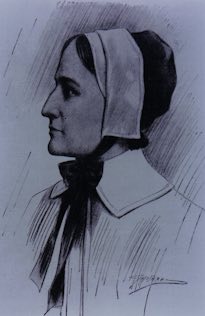
Anne Hutchinson
Religious leader who insisted on practicing her religious faith as she chose, including holding religious meetings in her home, the first woman in the new world to do so. As a result, she was banished from the Massachusetts Bay Colony.
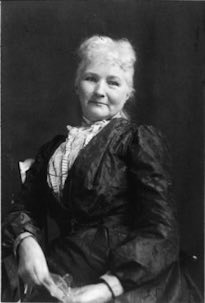
Mary "Mother" Harris Jones
Labor organizer and agitator who was a major figure in the American labor movement. For decades, Jones spoke out and organized for social justice for workers. She worked on behalf of the United Mine Workers and other groups.
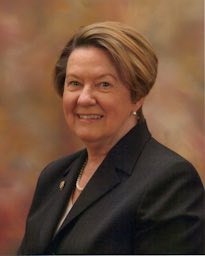
Susan Kelly-Dreiss
Susan Kelly-Dreiss has worked for over 30 years to enact legal protections, implement innovative services and heighten public awareness on behalf of battered women and their children. In 1976, Kelly-Dreiss lobbied for passage of Pennsylvania’s first domestic violence law, and later that same year, she co-founded the nation’s first domestic violence coalition, the Pennsylvania Coalition Against Domestic Violence (PCADV). She was a founding member of the National Network to End Domestic Violence, and has played a key role in drafting federal legislation including the Federal Violence Prevention and Services Act and the Violence Against Women Act.
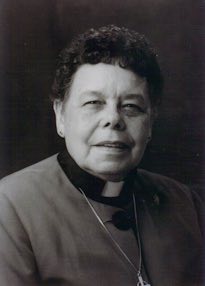
Leontine T.C. Kelly
A Methodist bishop, Leontine T.C. Kelly was the first African American woman to be elected bishop in the United Methodist Church. She served as bishop of the California-Nevada Annual Conference and the president of the Western Jurisdiction College of Bishops. Committed to peace and justice, she was arrested several times for protesting nuclear weapons, and was one of 18 bishops who signed a letter to the Methodist Church in response to its policy toward gays and lesbians in the church.
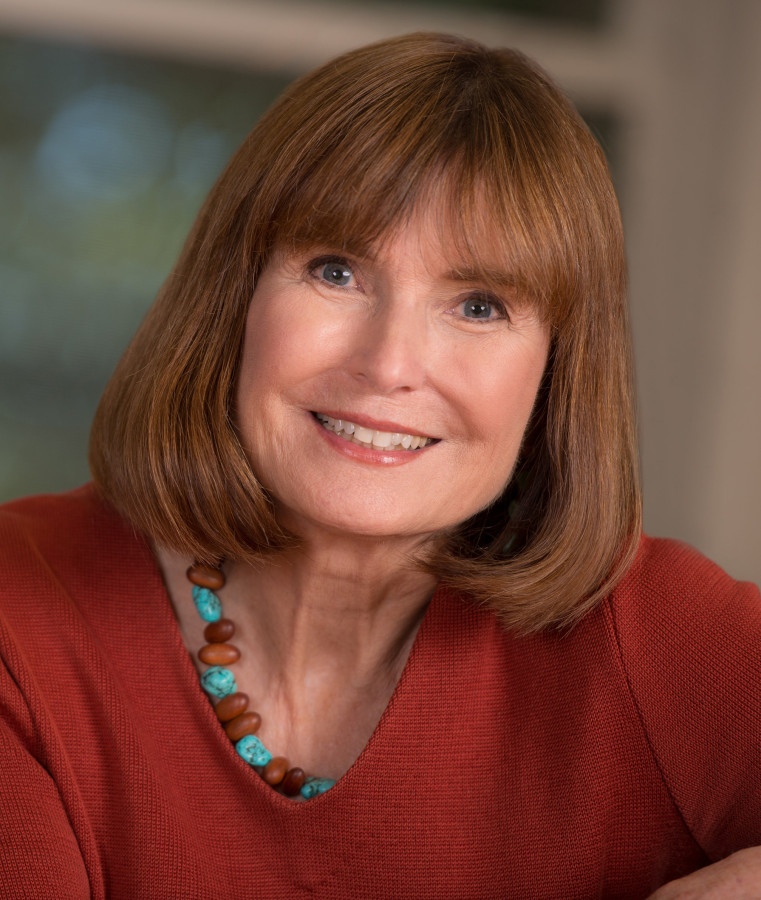
Jean Kilbourne
Through her pioneering work studying images of women in advertising, Jean Kilbourne has changed the conversation as to how organizations and educational institutions address many public health problems including smoking, high-risk drinking eating disorders, obesity, sexualization of children, and violence against women.

Coretta Scott King
One of the most celebrated champions of human and civil rights, Coretta Scott King, in partnership with her husband, Dr. Martin Luther King, Jr., ignited democracy movements worldwide. For over forty years, King traveled extensively as a messenger of peace, justice and social action. Notably, in 1974, she formed and co-chaired the National Committee for Full Employment, formed the Coalition of Conscience (1983), and co-convened the Soviet-American Women’s Summit (1990). In 1969, she became the founding president, chair and chief executive officer of The King Center, the first institution built in memory of an African American leader. As a lifelong advocate for non-violence and coalition building, King’s legacy will continue to serve as an example for years to come.

Anne Hutchinson
Religious leader who insisted on practicing her religious faith as she chose, including holding religious meetings in her home, the first woman in the new world to do so. As a result, she was banished from the Massachusetts Bay Colony.

Mary "Mother" Harris Jones
Labor organizer and agitator who was a major figure in the American labor movement. For decades, Jones spoke out and organized for social justice for workers. She worked on behalf of the United Mine Workers and other groups.

Susan Kelly-Dreiss
Susan Kelly-Dreiss has worked for over 30 years to enact legal protections, implement innovative services and heighten public awareness on behalf of battered women and their children. In 1976, Kelly-Dreiss lobbied for passage of Pennsylvania’s first domestic violence law, and later that same year, she co-founded the nation’s first domestic violence coalition, the Pennsylvania Coalition Against Domestic Violence (PCADV). She was a founding member of the National Network to End Domestic Violence, and has played a key role in drafting federal legislation including the Federal Violence Prevention and Services Act and the Violence Against Women Act.

Leontine T.C. Kelly
A Methodist bishop, Leontine T.C. Kelly was the first African American woman to be elected bishop in the United Methodist Church. She served as bishop of the California-Nevada Annual Conference and the president of the Western Jurisdiction College of Bishops. Committed to peace and justice, she was arrested several times for protesting nuclear weapons, and was one of 18 bishops who signed a letter to the Methodist Church in response to its policy toward gays and lesbians in the church.

Jean Kilbourne
Through her pioneering work studying images of women in advertising, Jean Kilbourne has changed the conversation as to how organizations and educational institutions address many public health problems including smoking, high-risk drinking eating disorders, obesity, sexualization of children, and violence against women.

Coretta Scott King
One of the most celebrated champions of human and civil rights, Coretta Scott King, in partnership with her husband, Dr. Martin Luther King, Jr., ignited democracy movements worldwide. For over forty years, King traveled extensively as a messenger of peace, justice and social action. Notably, in 1974, she formed and co-chaired the National Committee for Full Employment, formed the Coalition of Conscience (1983), and co-convened the Soviet-American Women’s Summit (1990). In 1969, she became the founding president, chair and chief executive officer of The King Center, the first institution built in memory of an African American leader. As a lifelong advocate for non-violence and coalition building, King’s legacy will continue to serve as an example for years to come.
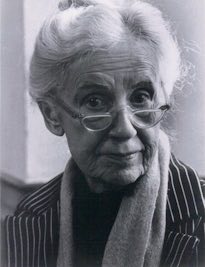
Maggie Kuhn
Following a forced retirement at age 65, Kuhn began work forming the Gray Panthers, an organization which addressed age discrimination and pension rights. Kuhn also addressed large public issues, including nursing home reform, forced retirement and fraud against the elderly.
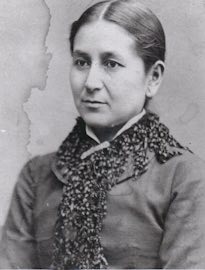
Susette La Flesche
Member of the Omaha Tribe and a tireless campaigner for native American rights. La Flesche was the first Native American published lecturer, artist and author. She helped change national perceptions about the rights of Native Americans.

Winona LaDuke
A graduate of Harvard and Antioch Universities, Winona LaDuke advocates for public support and funding for frontline native environmental groups. In 1994, she was nominated by Time Magazine as one of America’s most promising leaders under forty years of age. In 1998, she was named Ms. Magazine Woman of the Year. Ms. LaDuke was the vice-presidential candidate on the Green Party ticket in both 1996 and 2000. She currently serves as director of the White Earth Land Recovery Project in Minnesota.
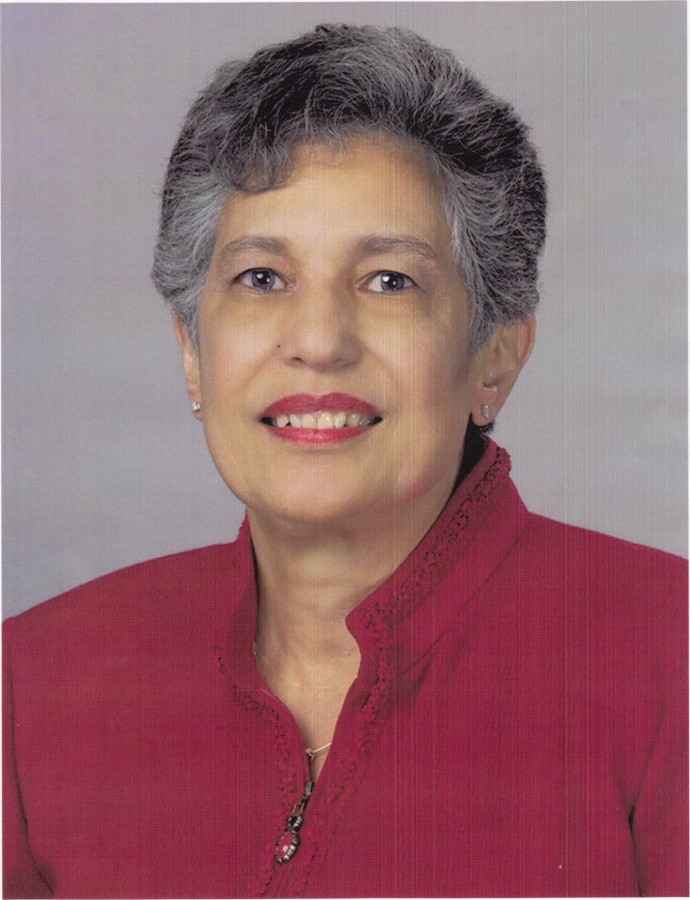
Carlotta Walls LaNier
Civil rights advocate Carlotta Walls LaNier, at age 14, was the youngest of the Little Rock Nine; the nine African-American students who integrated Central High School in Little Rock, Arkansas. A recipient of the Congressional Gold Medal, she works to ensure equal access to education for children of color.
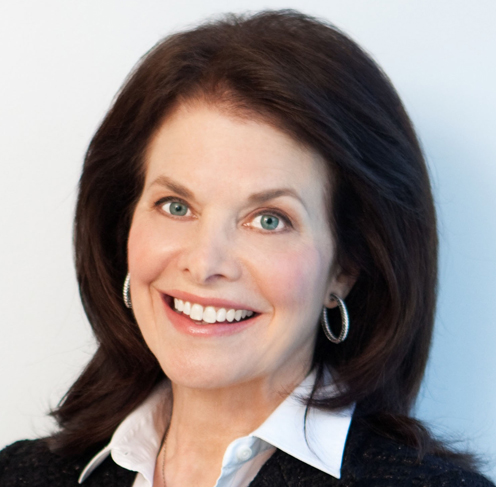
Sherry Lansing
A trailblazer, visionary leader and creative filmmaker. She was involved in the production, marketing and distribution of more than 200 films and the first woman to head a major film studio.
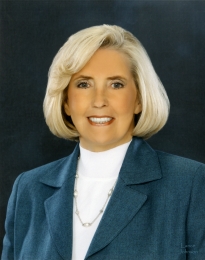
Lilly Ledbetter
For over a decade, Lilly Ledbetter has fought to achieve pay equity. Upon retiring from her position as a manager with the Goodyear Tire and Rubber Company, Ledbetter discovered that she had been paid considerably less than her male colleagues. She filed a formal complaint with the Equal Employment Opportunities Commission and later initiated a lawsuit against Goodyear alleging pay discrimination. Although a jury initially awarded her compensation, the Supreme Court ruled that Ledbetter could not receive any money because she had filed her complaint more than 180 days after receiving her first discriminatory paycheck. Since then, Ledbetter has continuously lobbied for equal pay for men and women; her efforts proved successful when President Obama signed the Lilly Ledbetter Fair Pay Act into law in 2009.

Maggie Kuhn
Following a forced retirement at age 65, Kuhn began work forming the Gray Panthers, an organization which addressed age discrimination and pension rights. Kuhn also addressed large public issues, including nursing home reform, forced retirement and fraud against the elderly.

Susette La Flesche
Member of the Omaha Tribe and a tireless campaigner for native American rights. La Flesche was the first Native American published lecturer, artist and author. She helped change national perceptions about the rights of Native Americans.

Winona LaDuke
A graduate of Harvard and Antioch Universities, Winona LaDuke advocates for public support and funding for frontline native environmental groups. In 1994, she was nominated by Time Magazine as one of America’s most promising leaders under forty years of age. In 1998, she was named Ms. Magazine Woman of the Year. Ms. LaDuke was the vice-presidential candidate on the Green Party ticket in both 1996 and 2000. She currently serves as director of the White Earth Land Recovery Project in Minnesota.

Carlotta Walls LaNier
Civil rights advocate Carlotta Walls LaNier, at age 14, was the youngest of the Little Rock Nine; the nine African-American students who integrated Central High School in Little Rock, Arkansas. A recipient of the Congressional Gold Medal, she works to ensure equal access to education for children of color.

Sherry Lansing
A trailblazer, visionary leader and creative filmmaker. She was involved in the production, marketing and distribution of more than 200 films and the first woman to head a major film studio.

Lilly Ledbetter
For over a decade, Lilly Ledbetter has fought to achieve pay equity. Upon retiring from her position as a manager with the Goodyear Tire and Rubber Company, Ledbetter discovered that she had been paid considerably less than her male colleagues. She filed a formal complaint with the Equal Employment Opportunities Commission and later initiated a lawsuit against Goodyear alleging pay discrimination. Although a jury initially awarded her compensation, the Supreme Court ruled that Ledbetter could not receive any money because she had filed her complaint more than 180 days after receiving her first discriminatory paycheck. Since then, Ledbetter has continuously lobbied for equal pay for men and women; her efforts proved successful when President Obama signed the Lilly Ledbetter Fair Pay Act into law in 2009.
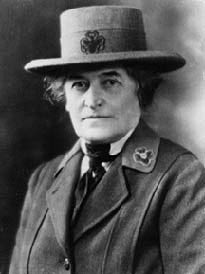
Juliette Gordon Low
As a tireless champion of young girls, Juliette Gordon Low founded the Girl Scouts of the USA (1912). Today, there are more than 3 million girl and adult members of the Girl Scouts of the USA.
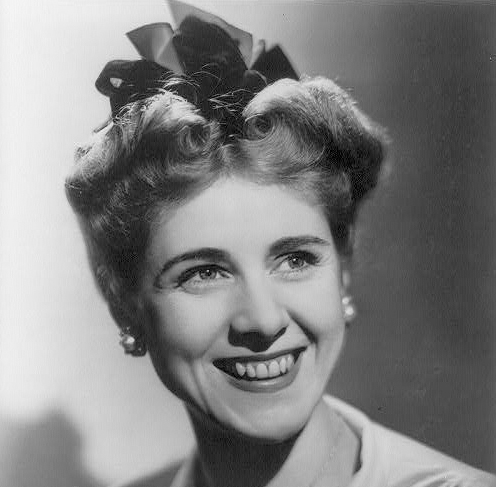
Clare Boothe Luce
She was instrumental in the creation of the Atomic Energy Commission and later established an endowment for what has become one of the single most significant sources of private support for women in science, mathematics, and engineering.

Wilma Mankiller
First woman elected Principal Chief of the Cherokee Nation. As Chief, Mankiller brought about major economic and social improvements for her tribe, including better health care, economic development, and education.
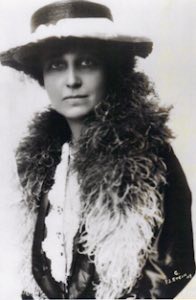
Katharine Dexter McCormick
Co-founder (with Carrie Chapman Catt) of the League of Women Voters in 1920, after ratification of the 19th Amendment. A graduate of MIT in 1904, she funded MIT’s first on-campus residence for women. She devoted her late husband’s wealth to contraceptive research and her own resources and energy to opening up doors for women in science and engineering.
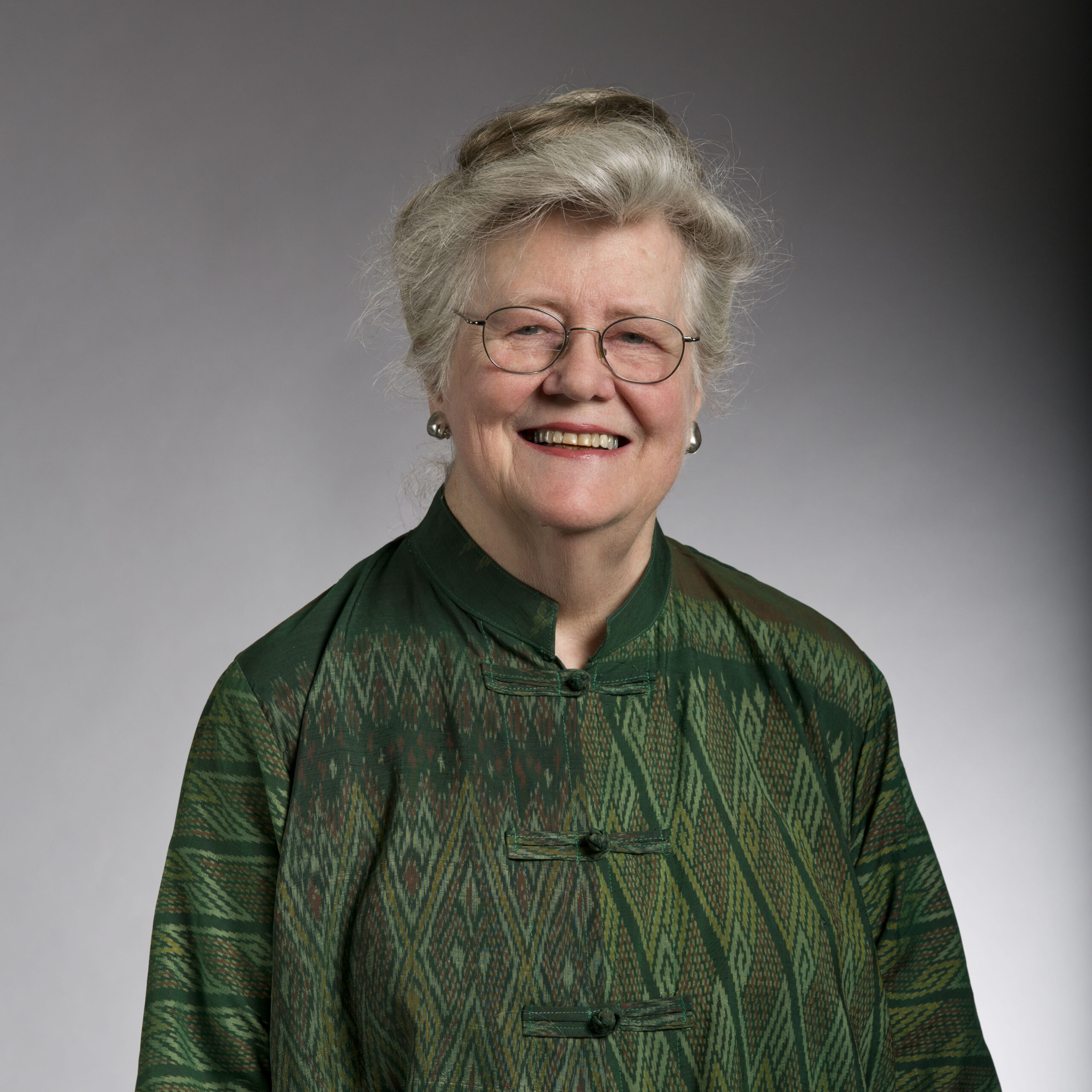
Peggy McIntosh
Peggy McIntosh is renowned as an educational innovator, feminist activist, author, and public speaker. McIntosh derived her understanding of white privilege from observing parallels with male privilege.
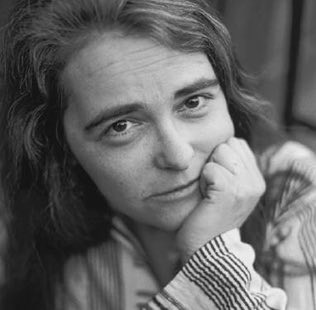
Kate Millett
A feminist activist, writer, visual artist, filmmaker, teacher and human rights advocate, Kate Millett has been described as one of the most influential Americans of the twentieth century. Millett began her career as an English instructor and in 1966, became the first Chair of the Education Committee of the newly formed National Organization for Women. In 1968, she authored a pioneering report published by NOW, Token Learning: A Study of Women’s Higher Education in America, in which she challenged women’s colleges to provide an equal education for women. Millett is perhaps best-known for her landmark work in feminist theory, Sexual Politics (1970). She currently serves as the Director of the Millett Center for the Arts, a creative work space that provides artist in residence accommodation and studio facilities to women artists from around the world.

Juliette Gordon Low
As a tireless champion of young girls, Juliette Gordon Low founded the Girl Scouts of the USA (1912). Today, there are more than 3 million girl and adult members of the Girl Scouts of the USA.

Clare Boothe Luce
She was instrumental in the creation of the Atomic Energy Commission and later established an endowment for what has become one of the single most significant sources of private support for women in science, mathematics, and engineering.

Wilma Mankiller
First woman elected Principal Chief of the Cherokee Nation. As Chief, Mankiller brought about major economic and social improvements for her tribe, including better health care, economic development, and education.

Katharine Dexter McCormick
Co-founder (with Carrie Chapman Catt) of the League of Women Voters in 1920, after ratification of the 19th Amendment. A graduate of MIT in 1904, she funded MIT’s first on-campus residence for women. She devoted her late husband’s wealth to contraceptive research and her own resources and energy to opening up doors for women in science and engineering.

Peggy McIntosh
Peggy McIntosh is renowned as an educational innovator, feminist activist, author, and public speaker. McIntosh derived her understanding of white privilege from observing parallels with male privilege.

Kate Millett
A feminist activist, writer, visual artist, filmmaker, teacher and human rights advocate, Kate Millett has been described as one of the most influential Americans of the twentieth century. Millett began her career as an English instructor and in 1966, became the first Chair of the Education Committee of the newly formed National Organization for Women. In 1968, she authored a pioneering report published by NOW, Token Learning: A Study of Women’s Higher Education in America, in which she challenged women’s colleges to provide an equal education for women. Millett is perhaps best-known for her landmark work in feminist theory, Sexual Politics (1970). She currently serves as the Director of the Millett Center for the Arts, a creative work space that provides artist in residence accommodation and studio facilities to women artists from around the world.
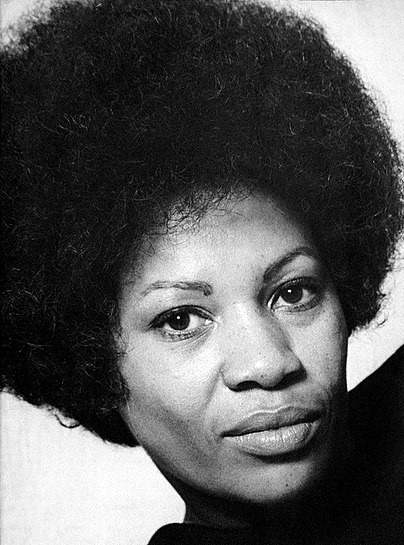
Toni Morrison
An author and book editor who fostered a new generation of Black writers. Morrison has been unapologetic about her focus on Black people’s experiences, and the power with which she has brought this focus.
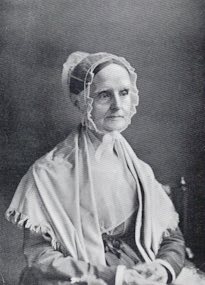
Lucretia Mott
Quaker anti-slavery advocate, who, after meeting Elizabeth Cady Stanton, became a leader in the women’s rights movement. Mott was a planner of the first Women’s Rights Convention in Seneca Falls in 1848, and she remained true to her sense of justice for African Americans and women throughout her life.
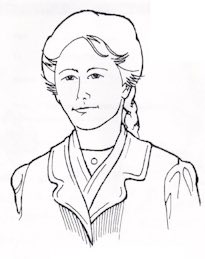
Kate Mullany
Founder and organizer of the Collar Laundry Union in 1864, she led a strike of 200 laundresses in Troy, NY, which resulted in a 25% wage increase and improvement of working conditions. Her efforts to organize women in New York City and financially assist both male and female unions were rewarded when she was appointed as an assistant secretary of the National Labor Union, making her the first female to hold a national labor post.
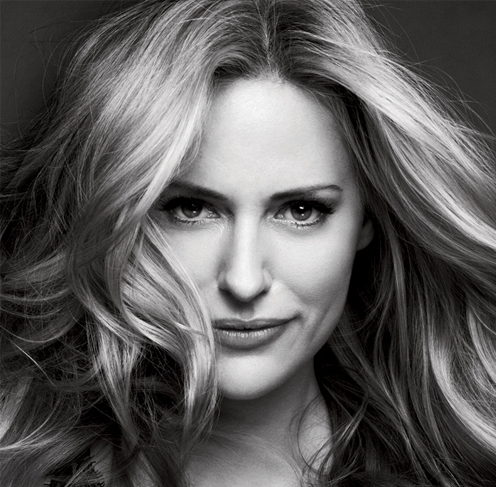
Aimée Mullins
She is a world record holding athlete, ground-breaking high fashion model, beacon for design tech, dedicated advocate, and avant-garde actor. She conceived of, and was the first to wear and compete in, prostheses modeled after the hind legs of a cheetah – now the international standard for amputee runners.
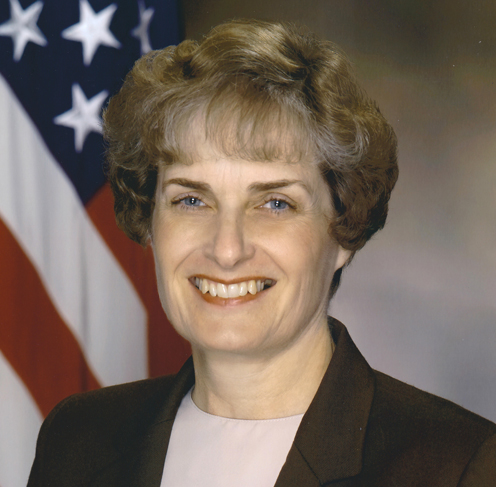
Carol A. Mutter
A Lieutenant General who entered the Marines when only 1% of Marines were women and no women were in the deployed services. Among her numerous activities, she has served as Chair of the Department of Defense Advisory Committee on Women in the Services and is a Past President of the Women Marines Association where she remains active at the national level.
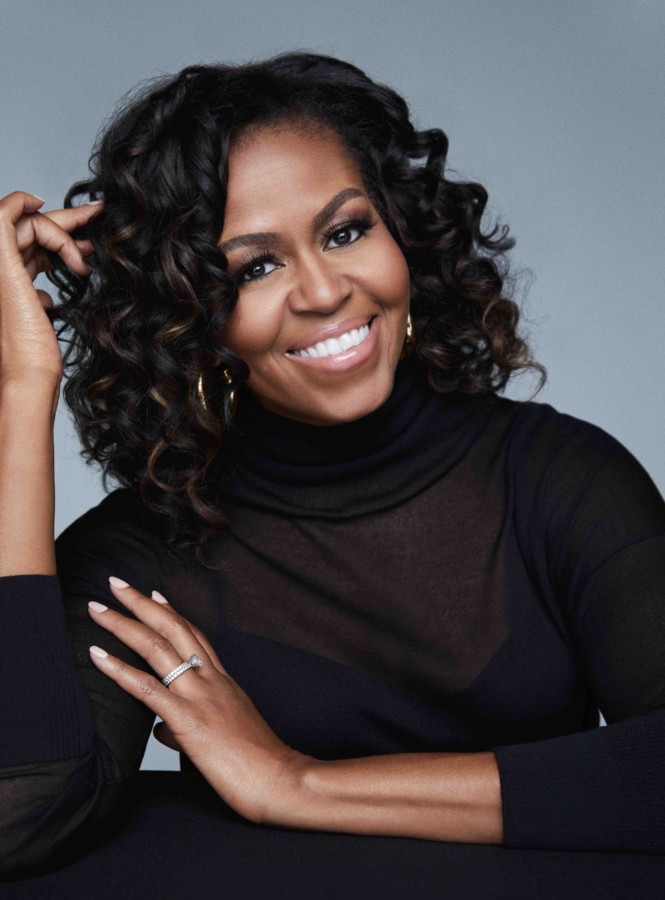
Michelle Obama

Toni Morrison
An author and book editor who fostered a new generation of Black writers. Morrison has been unapologetic about her focus on Black people’s experiences, and the power with which she has brought this focus.

Lucretia Mott
Quaker anti-slavery advocate, who, after meeting Elizabeth Cady Stanton, became a leader in the women’s rights movement. Mott was a planner of the first Women’s Rights Convention in Seneca Falls in 1848, and she remained true to her sense of justice for African Americans and women throughout her life.

Kate Mullany
Founder and organizer of the Collar Laundry Union in 1864, she led a strike of 200 laundresses in Troy, NY, which resulted in a 25% wage increase and improvement of working conditions. Her efforts to organize women in New York City and financially assist both male and female unions were rewarded when she was appointed as an assistant secretary of the National Labor Union, making her the first female to hold a national labor post.

Aimée Mullins
She is a world record holding athlete, ground-breaking high fashion model, beacon for design tech, dedicated advocate, and avant-garde actor. She conceived of, and was the first to wear and compete in, prostheses modeled after the hind legs of a cheetah – now the international standard for amputee runners.

Carol A. Mutter
A Lieutenant General who entered the Marines when only 1% of Marines were women and no women were in the deployed services. Among her numerous activities, she has served as Chair of the Department of Defense Advisory Committee on Women in the Services and is a Past President of the Women Marines Association where she remains active at the national level.

